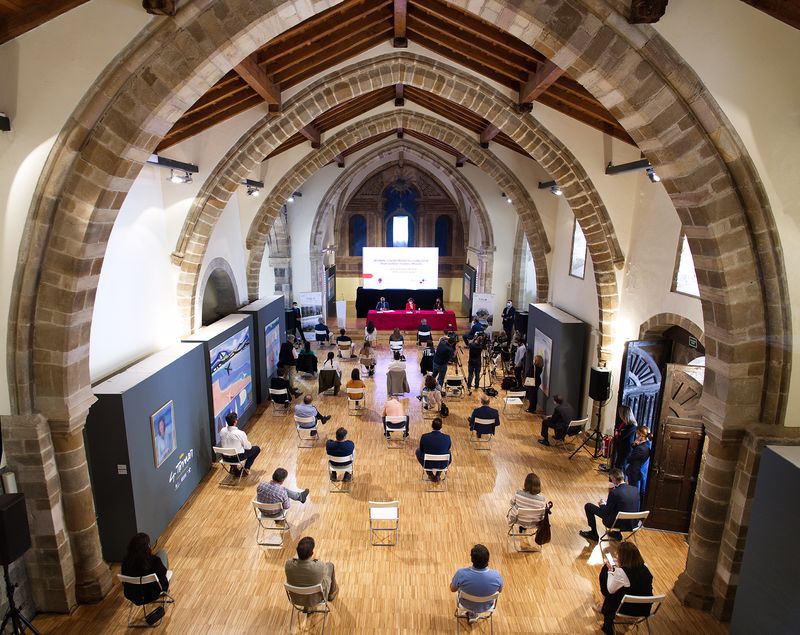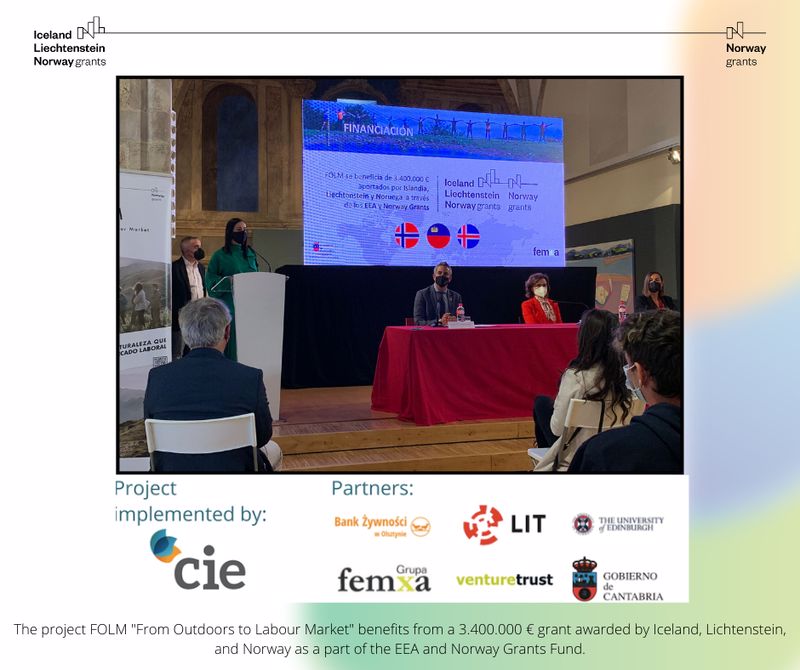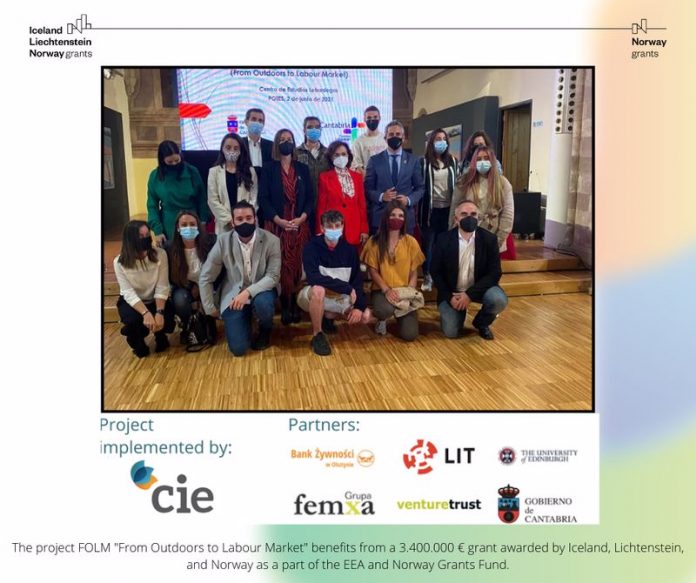On Wednesday, June 2nd The first vice president of the Government of Spain, Carmen Calvo, and the vice president of the Cantabria’s Government, Pablo Zuloaga, visit the village of Potes where the Outdoor Learning activities of FOLM in Spain are organized.
They placed young people at the center of the political agenda and have recognized that it is one of the main concerns for both Executives.
“For the Government of Spain, one of the main concerns is the employment of young people, to which we are going to dedicate 3,500 million EUR, knowing that Spain is at stake with what we are going to do with your future and with the ability to mobilize, first, your talent and, secondly, what you are capable of displaying from the training you have ”, said Calvo, during his speech at the Centro de Estudios Lebaniegos in Potes to some FOLM participants
The FOLM program seeks to improve the employment opportunities of young people between 18 and 29 years old, who are not working or receiving training, through the development of social and personal skills that improve their motivation and confidence. This project is financed by the EEA&Norway Grants
 “We are in front of the things that really matter,” said the vice president, for whom “Spain currently has the resources to make the transformation that we could not imagine would come so soon”.
“We are in front of the things that really matter,” said the vice president, for whom “Spain currently has the resources to make the transformation that we could not imagine would come so soon”.
In this sense, Zuloaga has also assured that “working for young people and how their future should be requires fine work” and has highlighted “the great responsibility” that institutions have to ensure “that no one is left behind” and ” a post-pandemic future that does not deny anyone the opportunity they deserve or undermine the trust of each of the boys and girls who are our future”. “This challenge requires a titanic effort from everyone,” he added.
In this framework, Zuloaga has placed the FOLM project, which “places young people in the focus of political action” and positions Cantabria “as a promoter of good practices in youth employability in the rest of Europe”.
Together with the Autonomous Community, this program is also developed in the Polish region of Warmia-Masuria and the central area of Ireland and focuses on young people aged 18 to 29 who are not working or receiving training for at least the last 6 months so that, through the development of social and personal skills, they can find the motivation and confidence necessary to improve their employment opportunities.
An initiative that, according to Carmen Calvo, applies “modern, more complex and more technical methods to reach the most important thing we have in life”, which is “to know who you are and where you are going” and has urged young people to “do not buy the ticket of discouragement.”
Along with Carmen Calvo and Pablo Zuloaga, the Minister of Economy and Finance, María Sánchez, and the general director of Youth, Irene Lanuza, also participated in the presentation of the FOLM program. The person in charge of coordinating the groups of the FOLM project in Cantabria, Fernando Carregal, and the president of the FEMXA group, Patricia García, the other FOLM partner from Spain, also participated.
 84% success and European fundraising opportunity
84% success and European fundraising opportunity
The Minister of Economy and Finance, María Sánchez, explained that, since the launch of this program, 342 young people have participated, who arrived without occupation, and currently 54% have resumed their studies, 30% are working and the 16% are actively seeking employment. A balance that supposes a success rate of 84% and shows, in her opinion, that this program “is working in Cantabria in an extraordinary way”.
“The Government has the firm intention of optimizing the performance of this initiative as an effective tool to combat youth unemployment,” said Sánchez, and has advanced that the Executive is studying the outdoor training model “as stage zero of all the workshop schools in the region”. This could be a “magnificent occasion”, he added, to “try to maximize the raising of financing from European funds”, either through the Recovery and Resilience Mechanism or from the complementarity offered by structural funds such as the European Social Fund.


